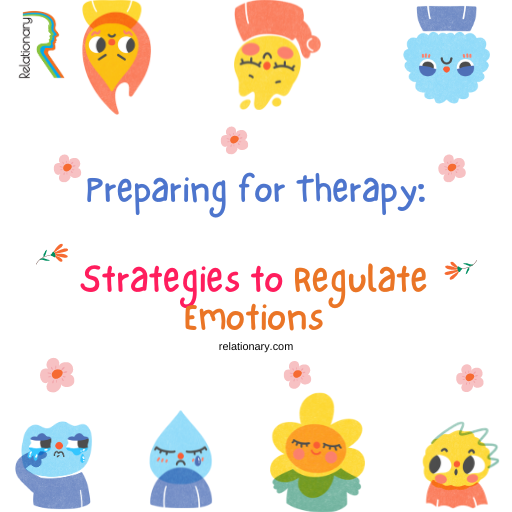Written by:
Aina Batrisyia
Marsya Anuar
Tan Joel Li Kai
Jin Yuan Liew
Emotions are real and can be measured and identified. They are strong feelings that everyone experiences, like fear or anger, in response to different situations. These emotions can shape how we react and have various effects on our bodies. For example, if you’re frustrated with your work, you might feel stressed, which can lead to an increased heart rate, higher blood pressure, and even a headache (Department of Health & Human Services, n.d.). Without any intervention, these bodily reactions may ultimately lead to a burnout. When people are faced with circumstances that cause intense emotional stress for long periods of time, this could exhaust their physical, mental, and emotional capacities, ultimately leading to a physical, psychological, and emotional breakdown (Travers, 2020). These breakdowns have negative effects on those affected, including increased anxiety, irritability, and development of insomnia (Nervous breakdown, n.d.). Hence, this is why emotion-related self-regulation is so important!
Controlling your emotions is a valuable skill known as emotional regulation. It can help you function better, enhance your quality of life, and boost both your mental and physical health (Kozubal et al., 2023). In the context of overall well-being, Kraiss et al. (2020) highlights the crucial role of emotional regulation. This indicates that effective emotional regulation strategies can greatly improve your overall well-being. Consequently, having strong emotional regulation strategies can help you manage emotional breakdowns more effectively. Therapy is recognized as one of the most effective methods for learning and mastering emotional regulation. However, what can you do if you’re experiencing an emotional breakdown and your next session is still hours, days, or even weeks away? This article will offer some strategies to help you manage your emotions while you wait for your therapy session.
Strategies 1: Calm your Nervous System
(Click here for Poster)
Your nervous system handles many essential functions, such as regulating thoughts, memory, learning, and emotions (Cleveland Clinic, 2024). However, when emotions take over, it can disrupt this balance, leading to unclear thinking, difficulties in problem-solving, and challenges in effective communication with others (Beer, 2023). Hence, it is important to find a way to calm your nervous system. You can do many things such as:
- Singing
- Taking a cold shower (Lebow & Silva, 2022)
- Doodling, crafting, drawing, painting (Hoshow, 2021)
- Gardening (Hoshow, 2021)
Strategies 2 : Practicing Mindfulness
(Click here for Poster)
Mindfulness involves being fully aware of your thoughts, feelings, bodily sensations, and environment at each moment. Mindfulness practices aim to develop and enhance this state of awareness (Zhang et al. 2021). Engaging in mindfulness can improve emotional regulation and promote calmness. Some effective mindfulness strategies include:
- Practicing deep breathing
- Journaling
- Praying
- Yoga
- Engaging five senses (Lebow & Silva, 2022)
- Smell – Take a moment to sit quietly and focus on different scents around you, such as the aroma of coffee, a flower, or essential oils. Try to identify and describe each scent.
- Touch – Take a walk and gently touch a variety of natural objects, such as different types of leaves, tree bark, or smooth stones. As you do, focus on and describe the unique textures and sensations of each item you encounter.
- Taste – Savor a small piece of food, such as a piece of fruit or a bite of chocolate. Pay close attention to the flavors, textures, and sensations as you eat, and try to notice any subtle tastes or changes in flavor.
- Hearing – Go for a walk and pay close attention to the sounds around you. Try to identify and mentally list each different sound you hear, such as birds chirping, footsteps, or the rustle of leaves.
- Sight – Explore your surroundings and find objects of a specific color, such as blue or green. Take a moment to notice the various shades and textures of these colored items.
Strategies 3: Sixteen Questions
(Click here for Poster)
The “Emotion Regulation Skills Manual” from UCSF Langley Porter Psychiatric Hospital & Clinics offers fourteen helpful questions. To further support your journey to feeling better, we’re adding two more questions. These new questions are meant to help you figure out what makes you feel good and improves your well-being. Here are the sixteen questions:
- My favorite movie of all time is…
- My favorite song of all times…
- My greatest accomplishment…
- My perfect day…
- My most cherished possession is…
- My favorite cheer me up music is…
- I enjoy reading…
- My fantasy vacation…
- I don’t do it much, but I enjoy it…
- If I could lighten up a little, I’d let myself…
- If I weren’t so stingy with myself, I’d buy myself…
- Two people I admire are…
- I am proud of myself for…
- I am grateful for…
- One thing that always makes me smile is…
- A hobby or activity I’ve always wanted to try is…
References
Beer, J. (2023). What Is Nervous System Regulation & Why Is It Important? PositivePsychology.com. https://positivepsychology.com/nervous-system-regulation/
Cleveland Clinic. (2024). Nervous System. Cleveland Clinic. https://my.clevelandclinic.org/health/body/21202-nervous-system
Department of Health & Human Services. (n.d.). Anger – how it affects people. Better Health Channel. https://www.betterhealth.vic.gov.au/health/healthyliving/anger-how-it-affects-people
Hoshaw, C. (2021). How to Calm Your Nervous System. Healthline. https://www.healthline.com/health/mind-body/give-your-nervous-system-a-break
Healthdirect Australia. (n.d.). Nervous breakdown. healthdirect. https://www.healthdirect.gov.au/nervous-breakdown
Kozubal, M., Szuster, A., & Wielgopolan, A. (2023). Emotional regulation strategies in daily life: the intensity of emotions and regulation choice. Frontiers in Psychology, 14. https://doi.org/10.3389/fpsyg.2023.1218694
Kraiss, J. T., Ten Klooster, P. M., Moskowitz, J. T., & Bohlmeijer, E. T. (2020). The relationship between emotion regulation and well-being in patients with mental disorders: A meta-analysis. Comprehensive psychiatry, 102, 152189.
Lebow, H. I. & Silva, S. (2022). Do You Know How to Manage Your Emotions and Why It Matters? Psych Central. https://psychcentral.com/health/emotional-regulation
Travers, V. (2020). Burnout in Orthopedic Surgeons. Orthopaedics & Traumatology: Surgery & Research, 106(1). https://doi.org/10.1016/j.otsr.2019.04.029
UCSF Langley Porter Psychiatric Hospital & Clinics. (n.d.). REHABILITATION SERVICES PATIENT EDUCATION MANUAL Emotion Regulation Skills. In UNIVERSITY OF CALIFORNIA SAN FRANCISCO Langley Porter Psychiatric Hospital & Clinics (Vol. 2). https://psychiatry.ucsf.edu/sites/psych.ucsf.edu/files/EMOTION%20REGULATION%20SKILLS%20MANUAL.pdf
Zhang, D., Lee, E. K. P., Mak, E. C. W., Ho, C. Y., & Wong, S. Y. S. (2021). Mindfulness-based interventions: an overall review. British medical bulletin, 138(1), 41–57. https://doi.org/10.1093/bmb/ldab005





0 Comments